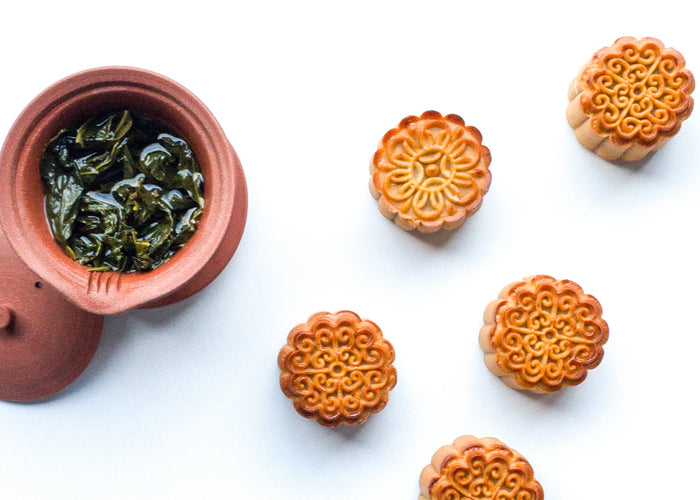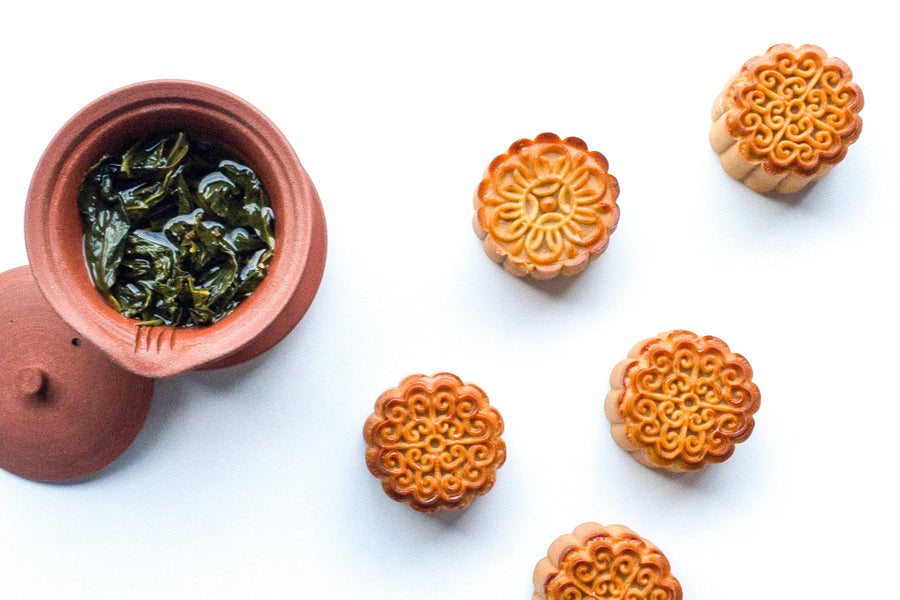Jingmai Maocha 2021 No.829
sour rhubarb, grapes, mild tartness
leaves from 300+ years old tea tress
Elevation:
1400-1600 meters
Region:
景迈 - Jingmai, Xishuangbanna prefecture
Yunnan Province, China
- Unit price
- /per
sour rhubarb, grapes, mild tartness
leaves from 300+ years old tea tress
Elevation:
1400-1600 meters
Region:
景迈 - Jingmai, Xishuangbanna prefecture
Yunnan Province, China
Adding product to your cart
Jingmai is a famous hill in China with a few villages on the hilltop, a huge contiguous tea area with quite a few really old tea trees - some of them even a thousand years old - which grown naturally in the forests. Jingmai is a truly unique place with its' untouched forests and the ancient way of tea cultivation, and harvest. Besides the typical southern Puerh notes we can find some fruity flavors in the teas also.
This specific tea was harvested in the spring of 2021, they made only 10 kg, and we were happy to get a big part of it. We got this in mao cha form, so they didn't press the leaves, thus the tea of it is more delicate and fresh. Sour rhubarb notes, citrus and table grapes, slightly embers, and some apricot in the aftertaste. The tea energy (cha qi) hugs the man definitely but not strongly. We can enjoy the delicacy and outstanding quality of this tea with careful making.
Steamed gaiwan: ember, almond shell, mild animality
Tastes, feelings: We found that tea is really complex in tastes amongst the puers; sour rhubarb, citrus essential oils, slight embers then table grapes, apricot, and resin in the aftertaste. The tea energy (cha qi) is immersive, after the third cup we found ourselves in the deep forests of Bakonybél, cleanse.
Quantity: 5-6 grams per 150 ml
Water temperature: 80-90ºC. From fresh, cold spring water or filtered water
Brewing time: 5-10…seconds
Infusions: 10-12
Jingmai is a famous hill in China with a few villages on the hilltop, a huge contiguous tea area with quite a few really old tea trees - some of them even a thousand years old - which grown naturally in the forests. Jingmai is a truly unique place with its' untouched forests and the ancient way of tea cultivation, and harvest. Besides the typical southern Puerh notes we can find some fruity flavors in the teas also.
This specific tea was harvested in the spring of 2021, they made only 10 kg, and we were happy to get a big part of it. We got this in mao cha form, so they didn't press the leaves, thus the tea of it is more delicate and fresh. Sour rhubarb notes, citrus and table grapes, slightly embers, and some apricot in the aftertaste. The tea energy (cha qi) hugs the man definitely but not strongly. We can enjoy the delicacy and outstanding quality of this tea with careful making.
Steamed gaiwan: ember, almond shell, mild animality
Tastes, feelings: We found that tea is really complex in tastes amongst the puers; sour rhubarb, citrus essential oils, slight embers then table grapes, apricot, and resin in the aftertaste. The tea energy (cha qi) is immersive, after the third cup we found ourselves in the deep forests of Bakonybél, cleanse.
Quantity: 5-6 grams per 150 ml
Water temperature: 80-90ºC. From fresh, cold spring water or filtered water
Brewing time: 5-10…seconds
Infusions: 10-12












